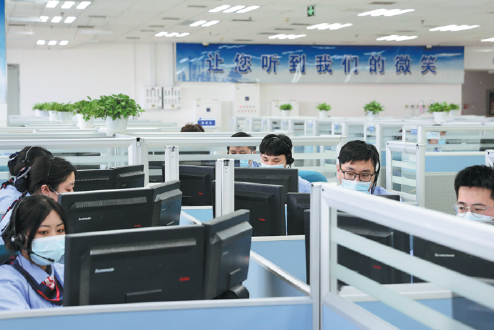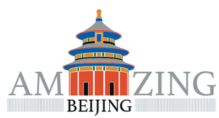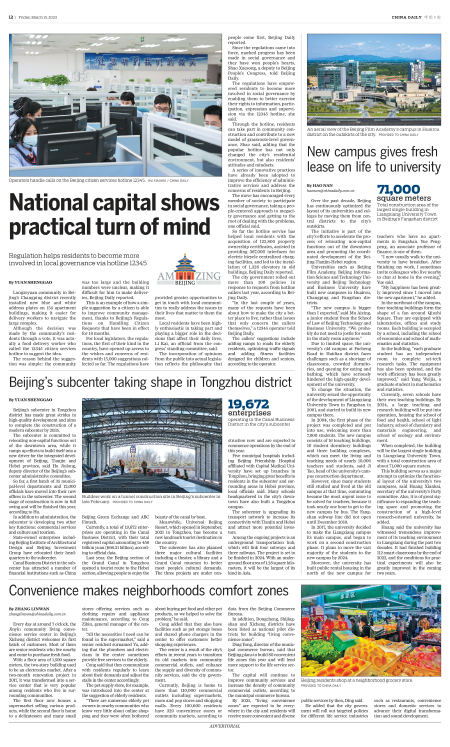
Operators handle calls on the Beijing citizen services hotline 12345.

Longzeyuan community in Beijing's Changping district recently installed new blue and white address plates on 154 apartment buildings, making it easier for delivery workers to navigate the large complex.
Although the decision was made by the community's residents through a vote, it was actually a food delivery worker who called the 12345 citizen services hotline to suggest the idea.
The reason behind the suggestion was simple: the community was too large and the building numbers were unclear, making it difficult for him to make deliveries, Beijing Daily reported.
This is an example of how a simple suggestion by a citizen is able to improve community management, thanks to Beijing's Regulations on Handling Citizen Requests that have been in effect for 18 months.
For local legislators, the regulations, the first of their kind in the country, have opened up access to the wishes and concerns of residents with 15,000 suggestions collected so far. The regulations have provided greater opportunities to get in touch with local communities to really address the issues in their lives that matter to them the most.
Local residents have been highly enthusiastic in taking part and playing a bigger role in the decisions that affect their daily lives, Li Kai, an official from the congress' standing committee, said.
The incorporation of opinions from the public into actual legislation reflects the philosophy that people come first, Beijing Daily reported.
Since the regulations came into force, marked progress has been made in social governance and they have won people's hearts, Shao Xuesong, a deputy to Beijing People's Congress, told Beijing Daily.
The regulations have empowered residents to become more involved in social governance by enabling them to better exercise their rights to information, participation, expression and supervision via the 12345 hotline, she said.
Through the hotline, residents can take part in community construction and contribute to a new model of grassroots-level governance, Shao said, adding that the popular hotline has not only changed the city's residential environment, but also residents' attitudes and mindsets.
A series of innovative practices have already been adopted to improve the efficiency of administrative services and address the concerns of residents in Beijing.
The move has encouraged every member of society to participate in social governance, taking a people-centered approach to megacity governance and getting to the root of dealing with the problems, one official said.
So far the hotline service has helped local residents with the acquisition of 122,800 property ownership certificates, assisted in providing 367,000 interfaces for electric bicycle centralized charging facilities, and led to the installation of 1,326 elevators in old buildings, Beijing Daily reported.
The city government rolled out more than 100 policies in response to requests from hotline callers last year, according to Beijing Daily.
"In the last couple of years, many of the requests have been about how to make the city a better place to live, rather than issues that only concern the callers themselves," a 12345 operator told Beijing Daily.
The callers' suggestions include adding ramps to roads for elderly residents, optimizing traffic signals and adding fitness facilities designed for children and seniors, according to the operator.

